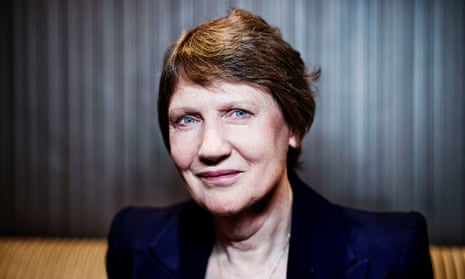Do you think that in Davos problems like inequality take a back seat to “real issues”, such as war?
I think we need to look at what some of the deeper drivers are of this volatile, uncertain, new global context, which Davos has as its theme this year. Underlying it are feelings of exclusion from political systems, from economic systems, and from social justice and rights. If you start to tackle inequality, that also becomes a way into tackling some of the other things blighting our world at the moment.
Can societies prioritise both equality and economic success?
I think the Scandinavian societies, which have long prioritised equality – equal opportunity and universal services – show us that it’s possible to be prosperous and highly developed, and also have high levels of equality. Traditionally, New Zealand has been an egalitarian society. It went through its period of neo-liberal adjustment, which took the edge off that and had quite fast-growing inequality. But New Zealand offers more opportunity, better basic services, and a better chance to get ahead than in a lot of places.
Working at the UN, there are so many different levels of development and consciousness of issues like these. How do you deal with the challenges?
Well, the challenges are huge and I think there has been a great focus on poverty eradication. However, just reducing poverty doesn’t reduce inequality, and we have been able to show that. Seventy-five percent of people in the developing world today live in countries that are less equal than they were 25 years ago. There have to be very deliberate strategies to tackle inequality and poverty. It’s not going to happen by accident. We all know what those policies are. It needs the political will and commitment to drive them through.
Are we getting any closer to inequality becoming a focus for the bulk of society?
I think there are large and powerful countries that are very focused on this. China has had rapid growth and a huge movement out of extreme poverty, but along with that has come growing inequality – something that greatly concerns its leadership. They have begun to introduce policies to try to redress that. Where leaders put a premium on trying to keep a harmonious society, they know that letting inequality get away is toxic for that.
Looking forward to the new millennial goals for the world, is inequality likely to become a higher priority?
Definitely, because poverty eradication in itself won’t reduce inequality. Inequality has been a specific focus; very much a feeling that we can’t leave people behind. That should then challenge countries to look at their policy mix around redistribution of income and power. Countries will report against their progress on these new goals, and will want to tell a story not of inequality going through the roof, but rather going through the floorboards.
The president of Ukraine says global institutions such as the United Nations are failing to address real issues. Do you think the UN can actually make a significant contribution to creating a more equal, safer world?
Well, it has to make a significant contribution and it has to be across the three strands of its mandate. I’m responsible for the development strand, where we get out, do practical things, and work with governments to make a difference and show impact on the ground. There’s the human rights strand, which struggles if the rights space is heavily contested. Then you have the political and security space, where things are quite grim and I can understand why the Ukrainian president would be offering reflections on that. There’s a war going on in the east of his country, and it’s getting greater emphasis on peace building, mediation, dispute resolution. Trying to get people to talk differences through and not fight them out, I think, is bread and butter work for the UN.
Helen Clark has been head of the UN Development Programme in New York since 2009, and was prime minister of New Zealand from 1999 to 2008.
More from Davos:
Davos 2015: world leaders ‘failing on social cohesion’
Helen Clark: ‘Davos must look at how war and climate change affect poverty’
Why Davos must shake off the shackles of wealth and entitlement
Sign up for your free weekly Guardian Public Leaders newsletter with news and analysis sent direct to you every Thursday. Follow us on Twitter via@Guardianpublic

Comments (…)
Sign in or create your Guardian account to join the discussion